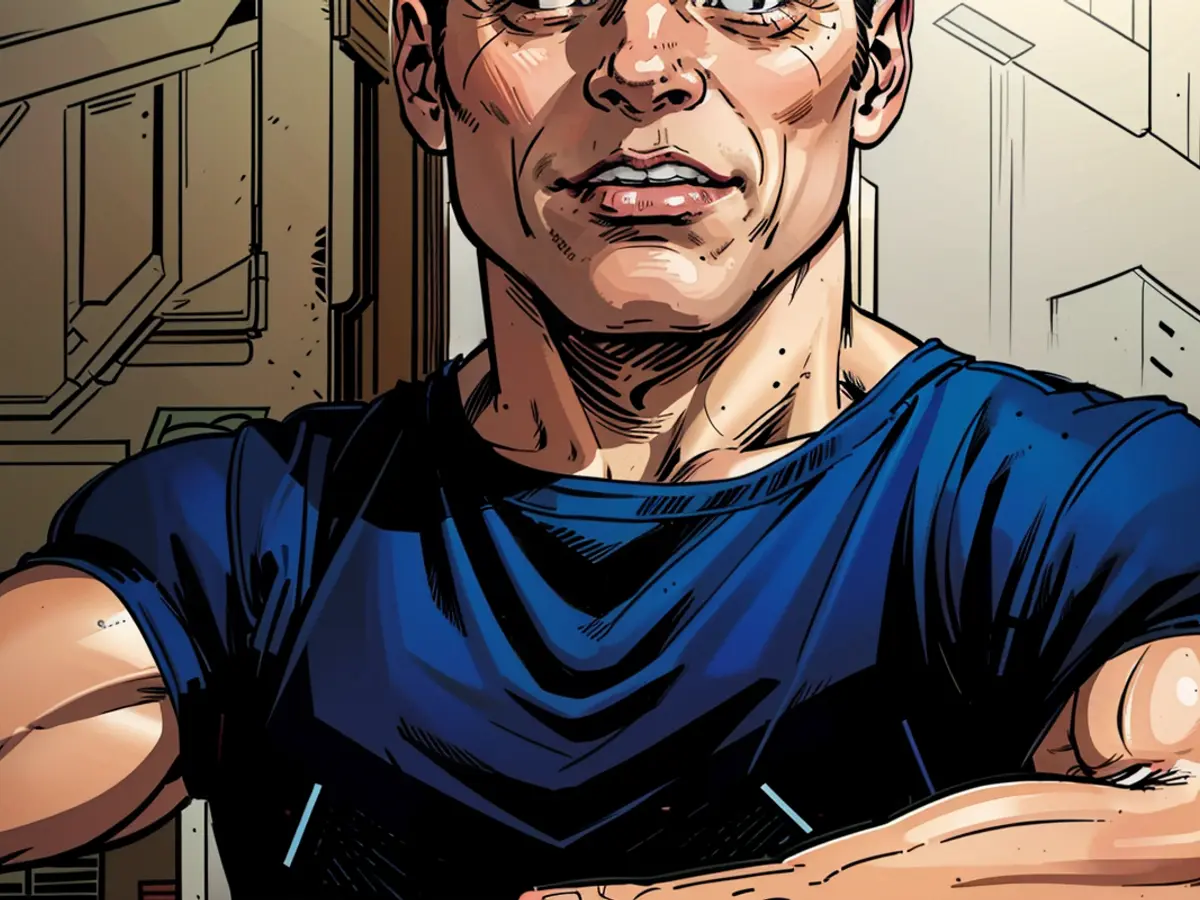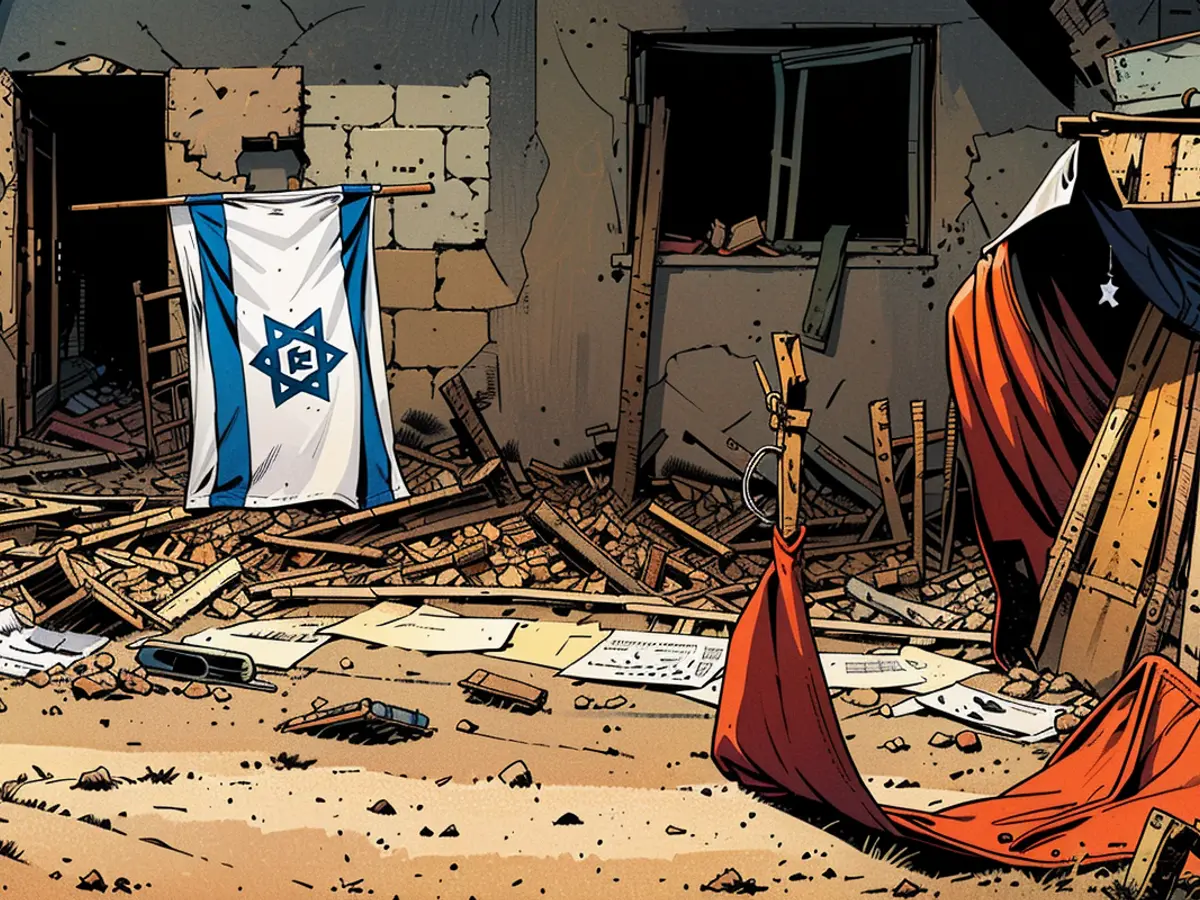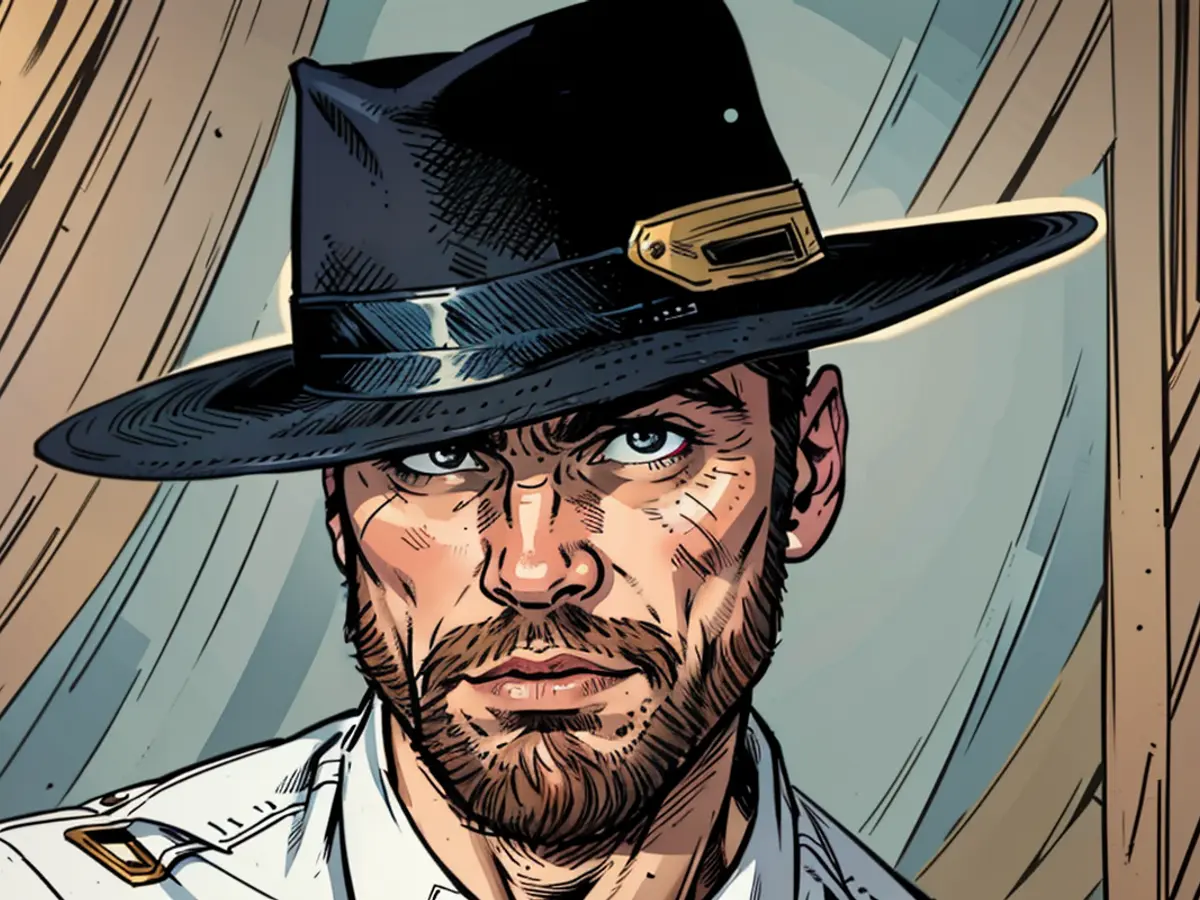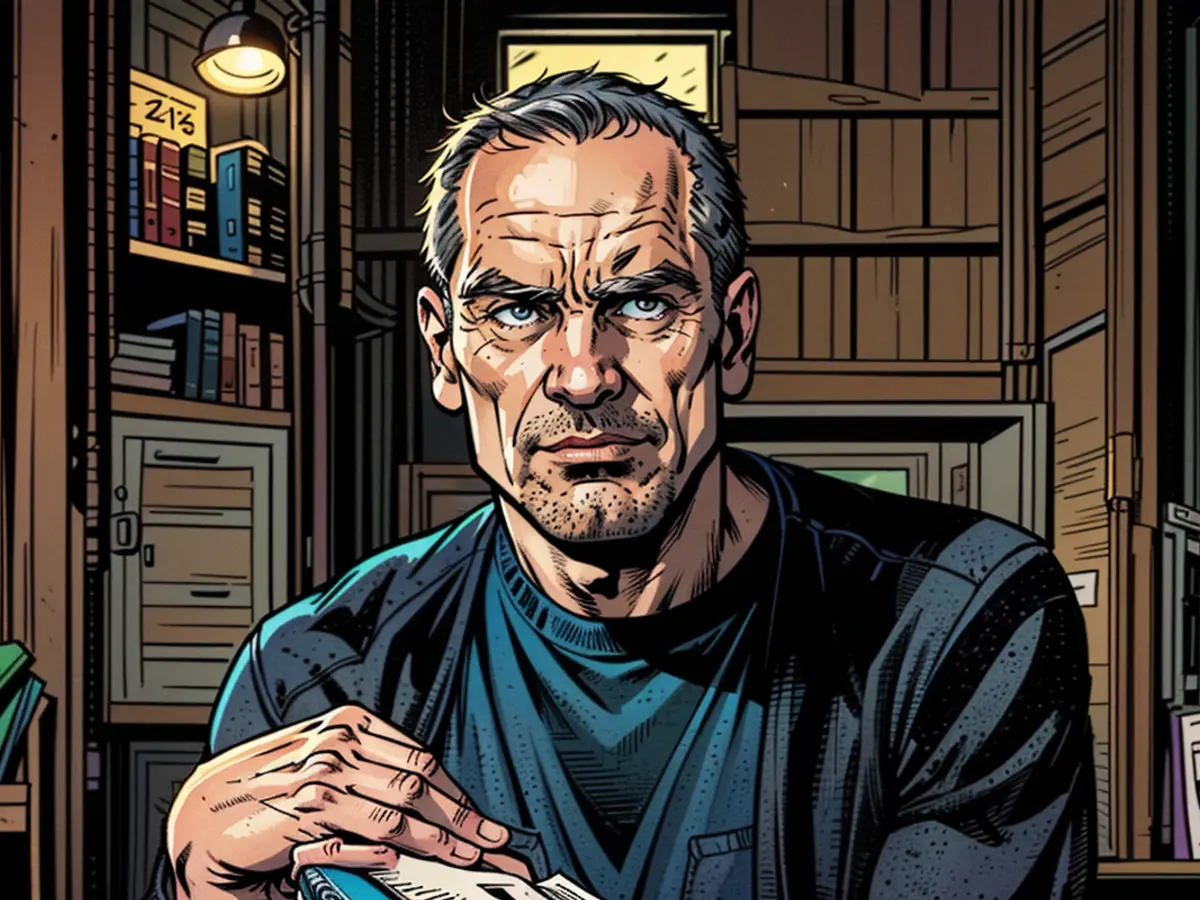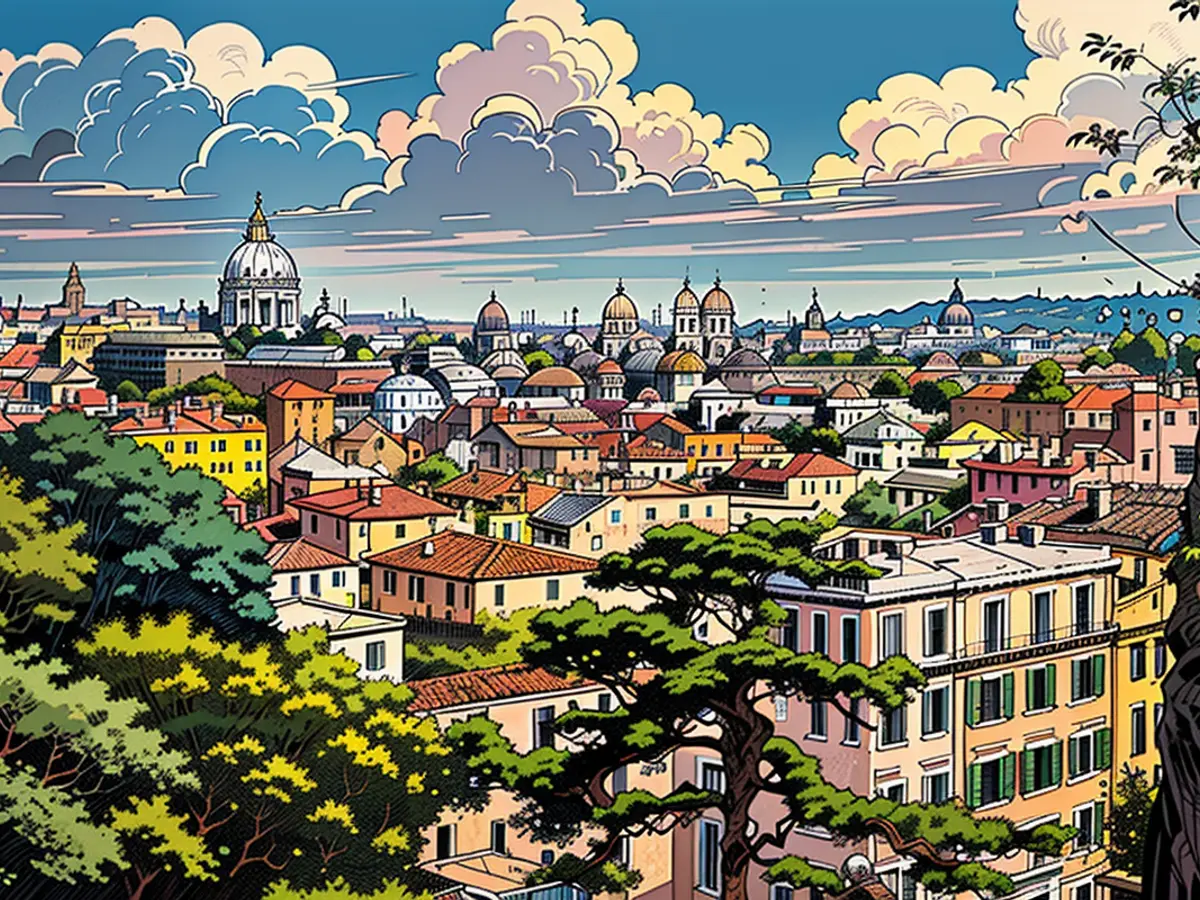Israel's society is committing suicide
"In October 2023, Ron Leshem writes at ntv.de about the murder of his aunt and the kidnapping of his cousin. From the article, a book is born. The Israel-Hamas conflict also becomes a battle of opinions. Against this, the Israeli-American producer and author (Euphoria, Beaufort) protests in 'Fire.'
"My aunt and uncle were burned alive, but in the Hamas videos, you see even worse things." This was written by the Israeli-American television producer and author Ron Leshem in October 2023 at ntv.de.
He wanted to offer a new perspective on the situation in the Middle East after the attack on Israel on October 7, 2023, and the beginning of the Gaza War as a liberal, homosexual peace activist. Leshem clearly named Hamas as the perpetrators of the unspeakable brutality. However, he also did not spare criticism of the dysfunctional, historically worst government of his homeland Israel.
His greatest hope: With the ntv.de article, he wanted to draw attention in Germany to the Hamas hostages. To the little children and babies taken from their neighbor's house in Kibbutz Be'eri. To his cousin Itai, who was taken away from the corpse of his mother. And not least to the 14 German nationals among the hostages. At the end of November 2023, then 12 of the hostages taken from Be'eri were released by Hamas, among them two of the little neighbors' children. Itai is not among them.
While waiting for news from his cousin and other friends and acquaintances, the author begins to write a book about the events of October 7. "After writing fiction for so many years, whether series or books, I couldn't imagine writing a non-fiction book," Leshem reports. The 47-year-old writes against the existential fears in his head. He hopes for a therapeutic effect, wants to hurry the time until his cousin returns to the family. He also wants to document the events and his pain in the search for truth for his little daughter.
For "Fire. Israel and the 7th of October," Leshem returns to his roots as an intelligence officer in the army and a journalist, who reports from war zones. With the help of a research team, he examines material and witness statements on the massacres at the Supernova Festival, military outposts, and kibbutzim in southern Israel.
"This is the most thoroughly documented massacre in history. Filmed by the Hamas GoPro cameras, surveillance cameras on the streets, dashboard cameras in vehicles (...) and the smartphones of civilians who want to record their last moments because they know they will die." - Excerpt from "Fire. Israel and the 7th of October"
Minute by minute, he documents the preconditions, shows the underestimated determination and methodology of the terrorists, as well as the complete failure of the Israeli army and government. Hours long, people begged their families, the police, the army for help. Even television stations and online media were flooded with news. In the end, help came for more than 1200 people too late.
"The state had collapsed like a sandcastle in a sandstorm. There was no police, no army, no generals, and no political leadership left."
This part of the book is particularly hard to read, even though the individual, parallel events are handled succinctly and in a report-like manner. However, Leshem is not content with a chronological account of October 7th. He wants to know how it all came to be. Why didn't anyone in the Israeli army believe the scouts who had been warning of an attack for weeks? What had the Netanyahu government promised them, treating Hamas as a pragmatic, reliable partner for years?
Leshem takes the reader back to the origins of the conflict, back to the founding of Israel, the expulsion of Palestinians, and the narratives that emerged then and continue to fuel hatred on all sides. He follows every clue that might explain the current situation: When did the rift in Israeli society begin, how did the rise of Hamas change life in Gaza, particularly for women, homosexuals, opponents of the Islamic regime? How could this current government, which is so far to the right and unlike any previous Israeli government, come to power? What was it about the weeks-long protests against Netanyahu and the judicial reform?
The author finally looks to the future: How can we all continue in a world where everyone believes they can choose which facts they believe and which truth they deny? For Leshem, what is happening in his homeland is a window, a mirror of many dark events and aspects that democratic societies may face in the near future: "I have the feeling I'm watching a society committing suicide. How its leadership is burying it. How the endless crash of a high-speed train," the author reports.
Leshem repeatedly emphasizes that his focus in this book is on Israeli society, simply because he currently has no access to the Gaza Strip. The only exception is the brief, telephone conversations with a friend who is there. After she describes her daily life and despair to him, and after he has watched countless videos from Gaza in which parents hold their dead children, he swears he will not stop looking at these images. And he realizes: "I can't go on."
"The Moderate Muslims are my Brothers"
To show his own cultural conditioning, Leshem shares the story of his family (European Judaism) and that of his life partner (Oriental Judaism). He shows which events moved him, but the unique aspect of this book is: He does not rely on his emotions but seeks as many information from various sources as possible to form a judgment about the events. Because for him, there is only one goal that should be pursued: that of liberal, tolerant coexistence.
"The moderate Muslims are my brothers, I am closer to and more similar to them than to any other people in the world. The fanatics of my own people, however, are my enemies. If politics continues to be driven by religious motives, we are on a murderous and fatal path."
In "Fire. Israel and the 7th of October," Leshem brings all his experience as a writer and collector of information to bear on the Middle East conflict to present it in all its layers. If readers take away the complexity of the book, regardless of how far they get in their reading due to the difficult subject matter, then Leshem has achieved much. Because this understanding is the foundation on which solutions for all the people in this region can be sought.
The author presents the initial designs and delivers them at the end. Compromises and sacrifices will be required from both sides. Some ideas of economic and social bloom for the region sound fictional, utopian, like Leshem's series and books, but: "The possibility of peace must offer both sides hope for a complete new beginning. A hope that is even greater than the trauma experienced." However, the opposite can also happen - the possibility that Israel will cease to exist appears more real and tangible to many Israelis than ever before.
The absurdity is: If Hamas achieves their goal and Israel disappears, Palestine and its neighbors would face the same fate that has long since occurred in the surrounding region. If peoples engage in civil wars and slaughter each other in such a way, the world no longer reads about it in the news or social media. Just as in the south of Gaza, in Sudan, at this moment.
The news of his cousin's death reaches Leshem before he can finish the book. Itai was one of the three hostages, whose images were presented by Hamas like in a reality show: "What do you think happened to them? A. They were all killed. B: Some were killed, others were injured. C. They are still alive. You will find out tomorrow evening."
Despite the tragic news about his cousin's death, Ron Leshem continues his work on the book titled "Fire. Israel and the 7th of October." He hopes to shed light on the complexities of the Israel-Hamas conflict, emphasizing the importance of understanding and seeking solutions for peaceful coexistence. In his book, Leshem critically examines the role of both Israel and Hamas in the ongoing conflicts, particularly focusing on the Wars and Conflicts in the Gaza Strip. He also shares his perspectives on the significance of moderate Muslims and the dangers of religious motives in politics.
